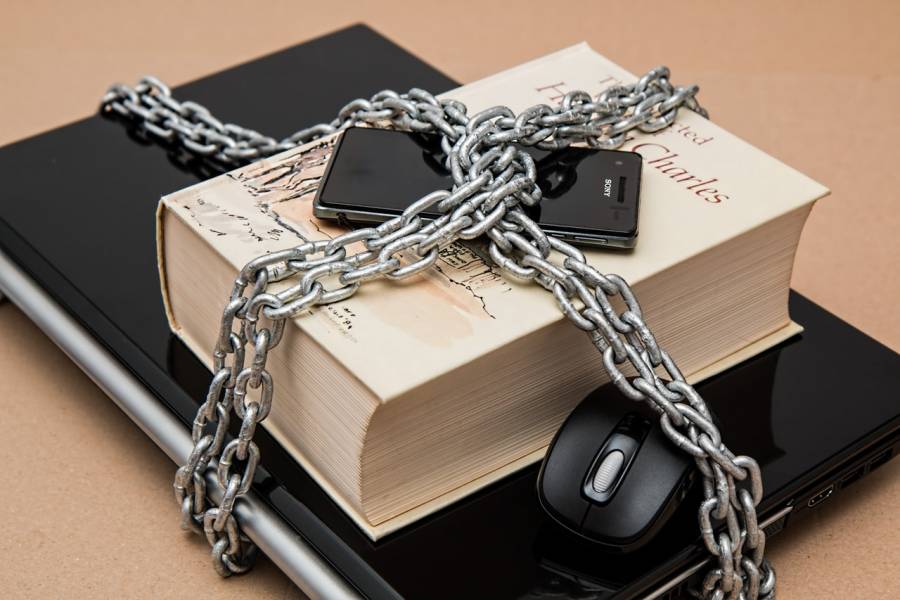Nowadays, with the increasing volume of Internet access, there is also a considerable increase in the number of breaches on the network, waiting for the unsuspecting. Recently, in a number of countries, the percentage of users and companies who have suffered some form of cybercrime, fallen victim to illegal digital activities, and violated their online privacy has increased.
In today’s world, practically everyone is connected, whether to check their email, update on social networks, or even buy online. The truth is that we spend a large part of our lives connected to the Internet.
However, do we pay enough attention to what we do and, mainly, to the personal data we provide? Are we sure that we are protecting them properly?
7 tips on how to protect yourself online and have more privacy:
-
Use trusted passwords.
The stronger your password, the more difficult a threat will be. For your passwords to be secure, they must contain capital letters, lowercase, numbers, special characters (@, #, etc.).
-
Avoid unnecessary exposure.
Be very careful with the information you share on your social networks. Avoid posting data about where you live, such as address and phone number. Only provide personal data to trusted sites. Although many companies today ask for this personal information, check the origin of those companies, what data they need, and for what.
Another way to avoid risks with exposure is to always disconnect from the GPS when you no longer use it. To maintain your privacy online, the GPS service shows you in real-time where you are located. Being everywhere comes at a price. Always being connected can be useful for your work, but registering everywhere you go allows you to leave marks and records of your routes and preferences.
-
Be careful with risky downloads.
Just download files from known websites. There are many free download sites for programs and applications that deceive their users. In many cases, when downloading the file, there is the hidden content that can destroy or take over stored data. Remember: always read the terms and conditions before installing an application or service.
-
Always use antivirus.
Always install and update your antivirus. With it, you can better protect your computer or smartphone. Antivirus not only safeguards you from malicious files and viruses, but it also helps protect your personal information.
-
Backup culture.
Backup is one of the best ways to protect against the loss of your data. So, if you are a victim of theft or damage to your computer and smartphone, you will have a copy of everything. Make regular backups. In addition to external hard drives, you can choose to backup in real-time to the cloud.
-
Updates are important.
Sometimes it can bother the warnings to update your Apps because they take up some memory space. But in reality, updates are needed and made to keep your data safe.
-
Use of encryption.
Finally, this measure is important. Many applications today already use encryption in their messages. Avoid using programs that do not use encryption, especially in instant messaging. With it, even the service provider will not have access to your conversations.
For a coherent internet.
We have seen that risks on the Internet always exist, but we will not stop surfing. Everything you do has its consequences, whether for better or for worse. However, the issue of online privacy has a profound social impact on our current society and one that does not escape the digital issue of laws, for example.
Today we discuss how our data are used by companies, such as machine learning and various other methods that take over decisions, such as artificial intelligence.
Today, protecting user data has become increasingly important in the midst of an open network movement zone. A data breach today is the action of a cybercriminal who successfully infiltrates a data source and extracts your confidential information.
Data in today’s world.
Today, data has become a priority for many companies. And as new technologies evolve, they can improve their methods of capturing and analyzing data. In the immediate future, executives will only use artificial intelligence to eliminate repetitive programming and research tasks. The way to approach online data privacy is already a concern, for example, by European countries, with the General Data Protection Regulation (GDPR).
GDPR is designed to protect users’ online privacy and provide more control over their personal data. The idea is for the regulation to be ethical and consistent with technologies, companies, and users following the principles of purpose limitation, data minimization, transparency, and the right to information.
The best path will always be the one with the highest security. When it comes to online privacy, as noted by the UN High Commissioner for Human Rights in August 2018, the “big data analysis and artificial intelligence allow more and more states and companies to obtain refined information on the lives of people,” and we often don’t realize what they are used for.
The truth is that we should not expose ourselves to unnecessarily on the Internet.
Conclusion
With these seven tips put in place, they will help you greatly reduce the chances of your information falling into the wrong hands.
Being aware of digital security issues keeps you on the right path to protecting the online privacy of your data. After all, you will not always know what and how much data is being collected at this time.


















